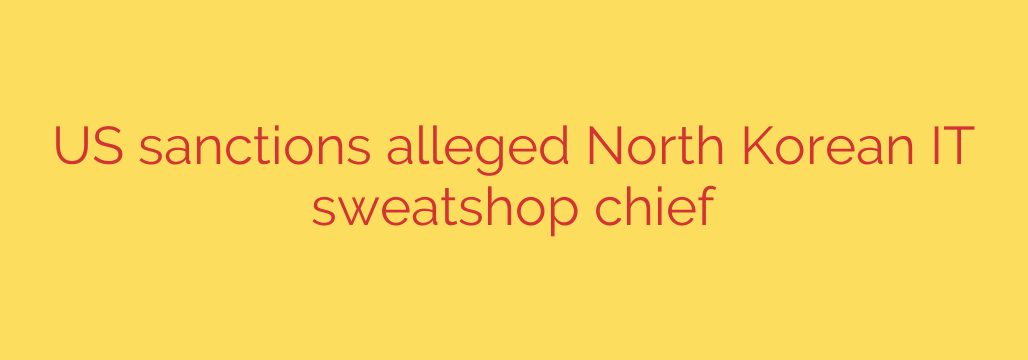
The United States government has recently taken action against individuals allegedly orchestrating schemes that deploy North Korean IT workers globally. This move highlights a critical, yet often hidden, method by which the North Korean regime reportedly generates significant foreign currency, often using deceptive tactics.
At the center of this action is an individual accused of being a key figure in managing these operations. These schemes involve dispatching highly skilled North Korean IT professionals to work remotely for companies worldwide, spanning various sectors like software development, mobile apps, and other IT services.
The concern isn’t just about unfair competition. A primary objective of these operations is believed to be the generation of revenue that flows directly back to the North Korean government, potentially funding illicit weapons programs and other activities that violate international sanctions.
Workers involved in these networks are often accused of using false identities, nationalities, and even fabricated employment histories to secure positions with unsuspecting companies. They may route payments through complex networks of shell companies and third parties to obscure the money’s origin and ultimate destination.
For businesses, unknowingly engaging workers tied to such operations presents significant risks. Beyond the ethical implications and the risk of inadvertently funding a hostile regime, there are tangible security and compliance dangers. Unverified remote workers could pose cybersecurity threats, potentially accessing sensitive data, intellectual property, or introducing malware into company networks. Furthermore, companies could face compliance issues for effectively doing business with entities linked to sanctioned regimes.
This enforcement action serves as a stark reminder to businesses about the importance of rigorous due diligence when hiring remote workers, especially when dealing with third-party recruiters or platforms. Verifying identities, understanding payment flows, and implementing robust security protocols are crucial steps to mitigate these risks.
Ultimately, the goal of targeting these IT operations is to disrupt a vital revenue stream for the North Korean regime, limiting its ability to finance activities that threaten international security. It underscores the evolving landscape of illicit financial activity and the need for constant vigilance in the global digital economy.
Source: https://go.theregister.com/feed/www.theregister.com/2025/07/09/us_sanctions_north_korean_it/








